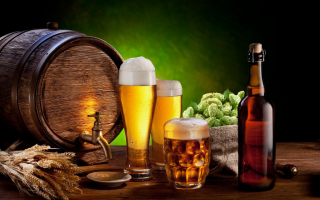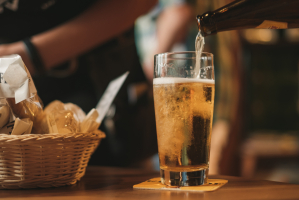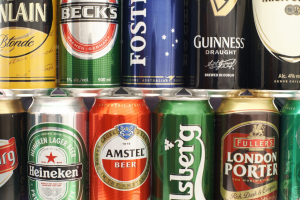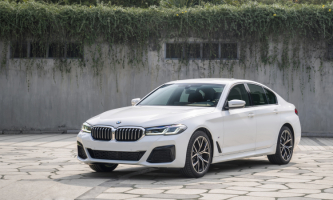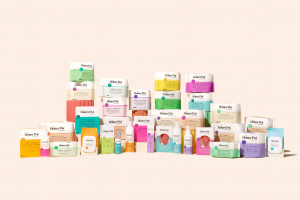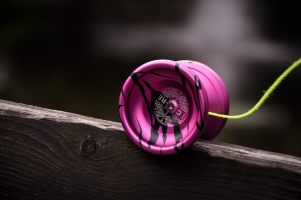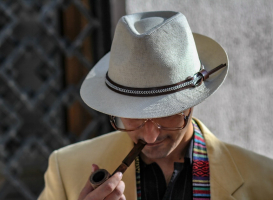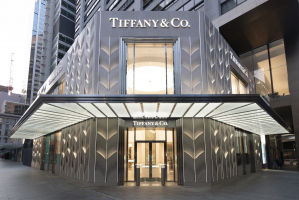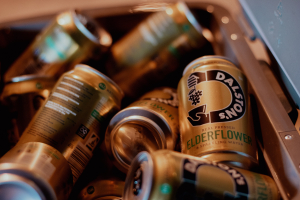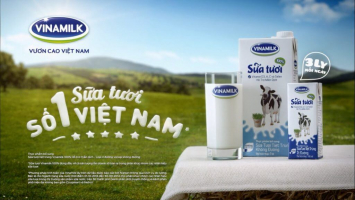Top 11 Famous German Beer Brands In the World
When visitors discuss powerful Germany, German beer has become a symbol. Germany's enthusiasm for well-made, excellent beer is renowned the world over. Many ... read more...German brewers continue to create beer following the Reinheitsgebot - the Beer Purity Law of 1516, which specifies that beer may only be prepared using water, barley, and hops. Brewers were not even legally permitted to add yeast and malts to beer until 1993. For good reason, Germans are famous for their beer, and no trip to Germany is complete without drinking some of the best brews listed here.
-
The Bayerische Staatsbrauerei Weihenstephan is a German brewery located in Freising, Bavaria, on the grounds of the ancient Weihenstephan Abbey. The overall output in 2014 was 382,341 hectolitres. The brewery claims to be "The World's Oldest Brewery." Until the 1950s, the brewery stated that it was founded in 1146. A paper dated from the year 1040 appeared about this period. Otto I, Bishop of Freising, awarded the monastery with a brewing privilege. The document is often regarded as a fabrication dating from the early 1600s. The brewery's first documented record is from 1675. Another document, dated from 768, mentions a hops garden nearby.
The cloister was taken over by the Bavarian government in 1803 when it was incorporated as the Königlich Bayerische Staatsbrauerei Weihenstephan. Currently, although being entirely owned by the Bavarian government, it is administered as a contemporary company following private-sector principles. The brewery lands were turned into a campus for the Hochschule Weihenstephan-Triesdorf.
Brewing is their craft and has been for nearly 1,000 years. Of course, high-tech has also come into brewing, but the basic brewing process remains unchanged. It is not enough to brew a good beer. It has to be an outstanding beer of consistently high quality with its layers of flavors that include clove and banana as well as cinnamon and malt. Therefore, Weihenstephaner has set for themselves the highest standard of quality: Premium Bavaricum. This necessitates not only persistent focus on the part of the brewmasters but also that all components for beer production are subjected to constant quality monitoring. Each day they have 300 hands working on. From brewmaster to storage facility worker to the secretary, they all ensure that only the quality that fulfills Weihenstephaner's standard leaves the house. And you can taste it!Website: https://www.weihenstephaner.de/en/
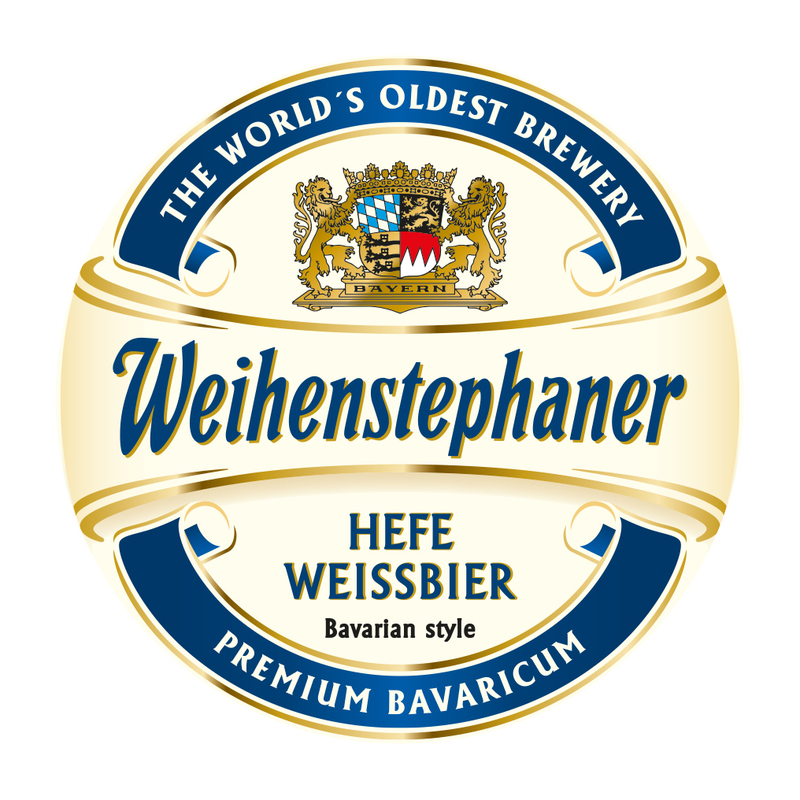
Weihenstephaner 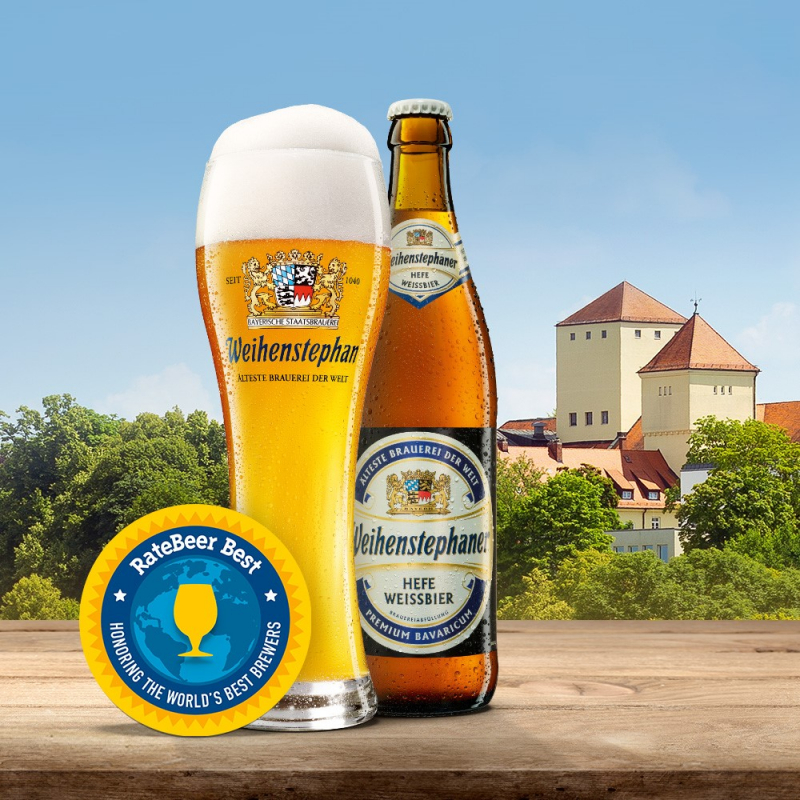
Weihenstephaner -
The Ayinger Brewery is located in Aying, Bavaria, Germany, approximately 25 kilometers from Munich. Ayinger beers are exported at a rate of 10%, mostly to Italy, the United States, and the rest of Europe. Ayinger brews have consistently won awards in international beer contests. Their original beer with a perfected formula has a gorgeous, light gold color. The bitterness of Ayinger beer grows with time. The excellent latency and mild finish leave a little bitterness on the tongue and palate. A full-bodied, refreshing, and easily palatable beer.
Since time immemorial, beer has had an especially high value in Bavaria. It is vital to German culture, in which values such as conviviality, community, honesty, dependability, and patriotism play a significant part. The deep roots in their region, continuously deepened over generations, form the nutrient base of the Ayinger Brewery. As a result, the quality of Ayinger beer, which has regularly won multiple awards for its excellence, is founded on more than simply the region's choice of ingredients and brewing skills. Equally essential is the ethos, philosophy, and principles that have guided their work for over 130 years.
Beyond the realm of the world-famous Ayinger beer specialties, these crucial components have also contributed to creating a unique brand name philosophy: “Aying, a Complete Work of Art” as the brand was once defined with perfect accuracy by a specialist journal. Maintaining this within the boundaries of genuine beer culture and preserving it for generations to come is their daily assignment. The Ayinger private brewery wins world-renowned prizes such as "The best brewery in Europe at the European Beer Star", and is enjoying growing popularity in its home region as well as at home and abroad.
Website: https://www.ayinger.de/cms/index.php/startpage.html
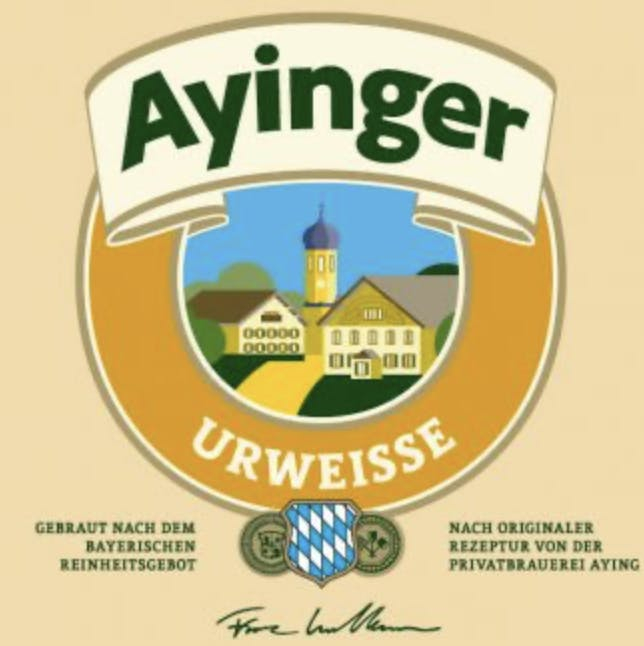
Ayinger 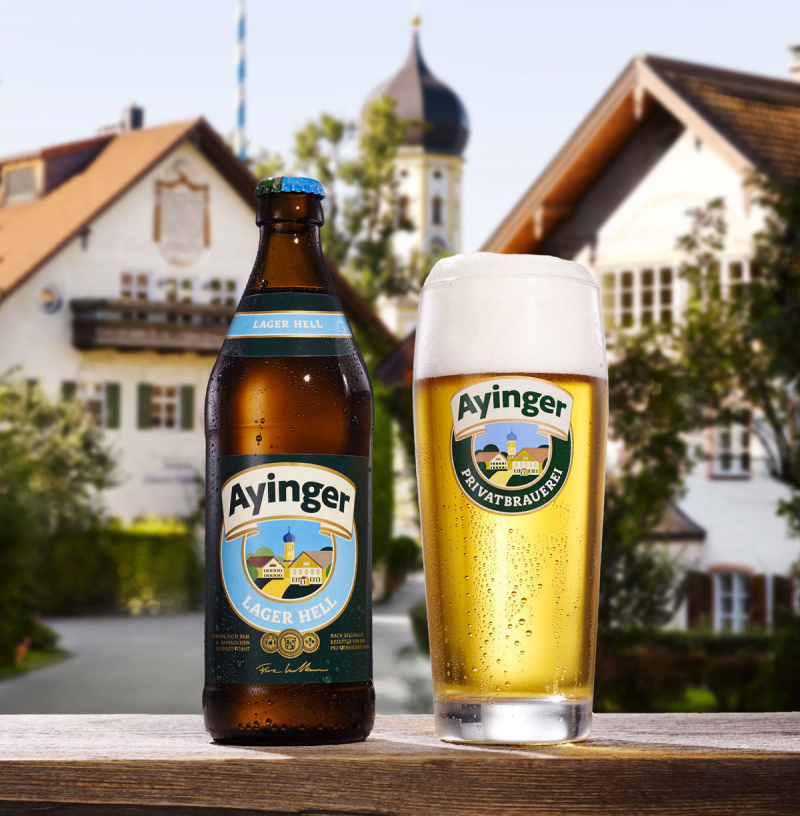
Ayinger -
The brewery was founded in 1872 by Georg Schneider I and his son Georg Schneider II after they acquired the Weisses Brauhaus in Munich, the oldest wheat beer brewery in the city. After the breweries in Munich were destroyed in 1944 by aerial bombardment by the Allies of World War II, the entire production was relocated to Kelheim. In occupied Germany, a few weeks after the end of World War II, the Third United States Army granted G. Schneider & Sohn permission to continue production of their wheat beers and deliver them to Munich.
Today, the brewery employs around 100 people and distributes its products across Germany and 27 other countries. The annual output is about 300,000 hectolitres, of which about 25% is sent outside of Germany. The entire product line consists of top-fermented wheat beers; Aventinus and Original are also bottle conditioned. The wheat comes from the upper Altmühltal, lower Bavaria, and Upper Palatinate regions. The malting barley is grown in the Kelheim and Riedenburg areas. Hallertau hops are used to give the beers their bittering and aromatic properties. All ingredients for the production of Schneider beer are subjected to strict factory testing, making the beer taste fresh and delicious, worthy of the leading position infamous German beer brands.
The core product is TAP 7 Mein Original (formerly Schneider Weisse Original), which is brewed according to the original recipe of 1872. Georg Schneider VI renamed the Schneider Weisse product range in 2009, to draw attention to the fact that the brewery also produces the products TAP 1 to TAP 6
Website: https://schneider-weisse.de/index.php/en/node/15
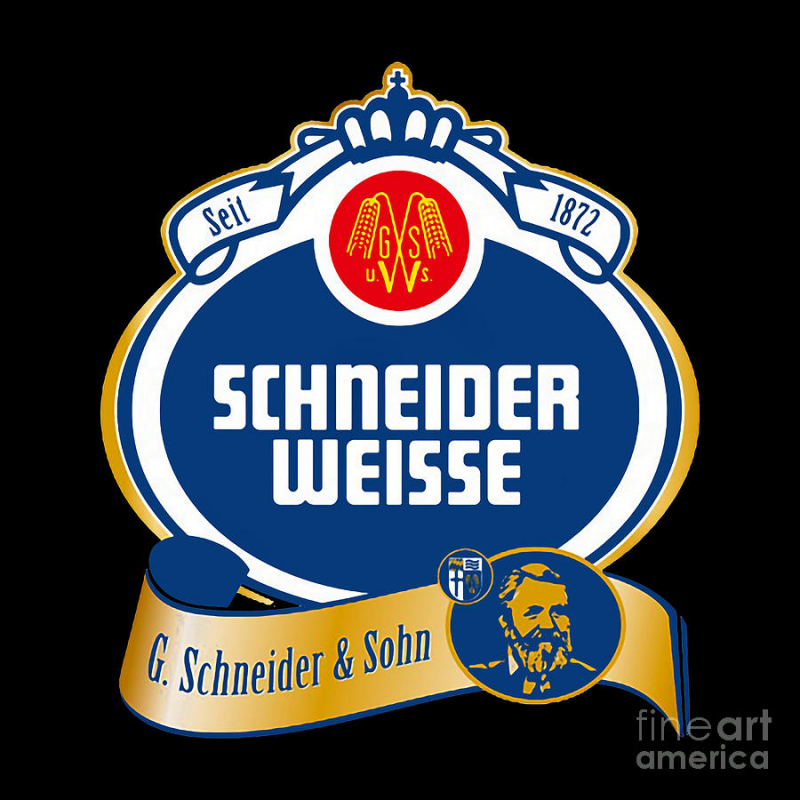
Schneider Weisse 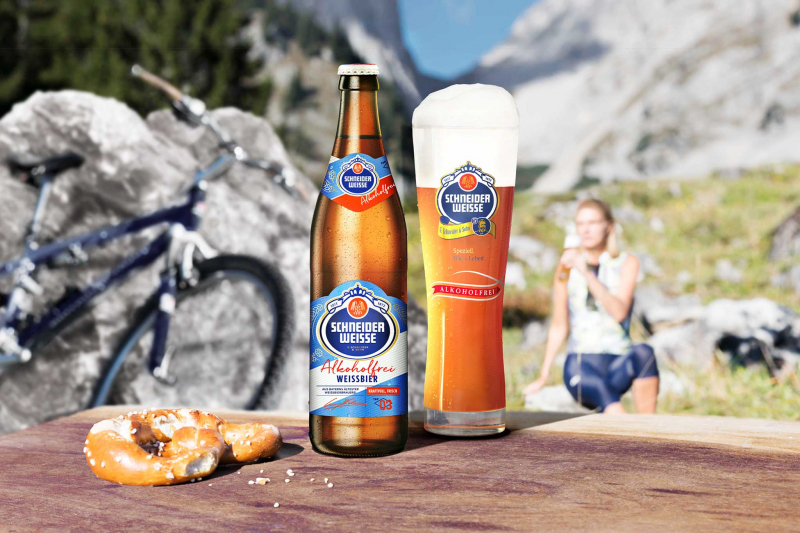
Schneider Weisse -
Gaffel Becker & Co is a brewery founded in 1908 by the Becker Brothers in Cologne. It produces a traditional regional-style top-fermented beer called Gaffel Kolsch. In recent years, Kolsch has entered the spotlight as the thirst-quenching, impossibly crisp lager of choice during hotter months.
The classic Gaffel Kolsch is a particularly fresh specialty beer from Cologne, brewed according to a time-honored family recipe and the German Purity Law of 1516 with water, malt, and hops extract. The delicately bitter, pleasant taste is characteristic of this traditional product and clearly distinguishes Gaffel Kolsch from all other Kolsch brands.
Gaffel has earned the right to be one of Germany's most well-known beer brands thanks to its use of fresh ingredients that have been rigorously tested by high-quality standards. Gaffel has produced beer with traditional methods for hundreds of years, along with contemporary production techniques that have allowed Gaffel Kolsch beer preserves the taste fresh, simple to drink. The first taste is extremely wonderful; there is a lot of malt flavor and a little breadiness. The beer also has a subtle sweetness that entices you to take another taste. Some Kolschs can be bitter from hops, but this one does not, and while hops are there, there is no residual discomfort.
Gaffel Kolsch has a slight fruitiness from the hops and is quite easy to drink. Gaffel Kolsch is one of the world's must-try beers; it is a comparatively older style, a fine example of beer made with old-world ingredients, and the only one that is extremely delicious, especially given the lower alcohol content.
Website: https://gaffel.de/en/
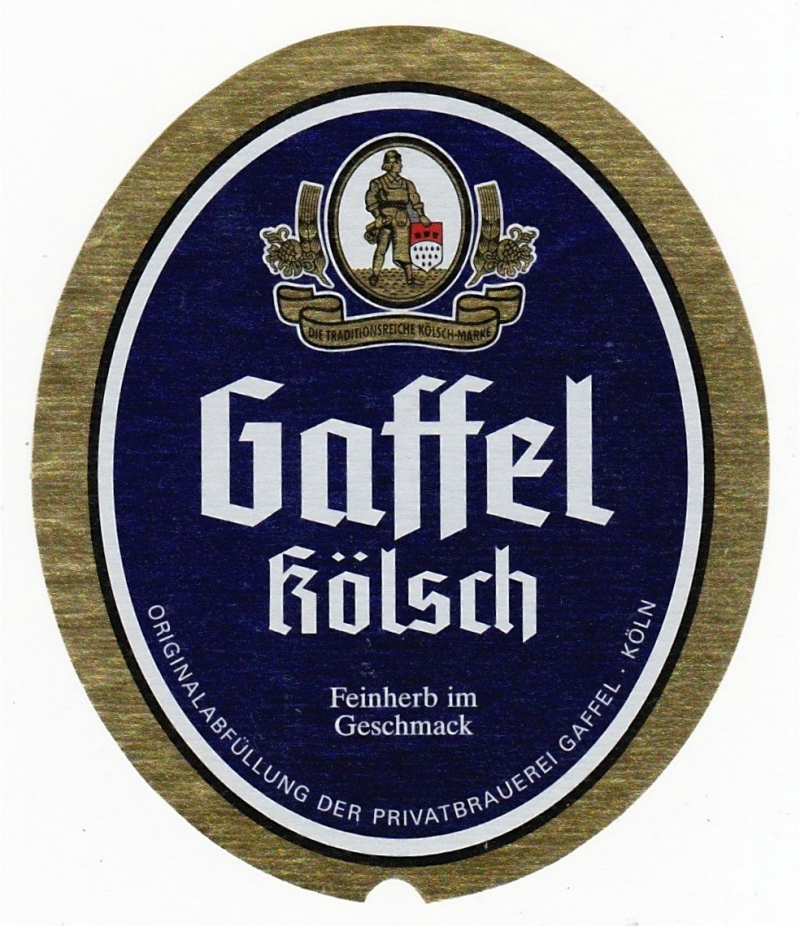
Gaffel Kolsch 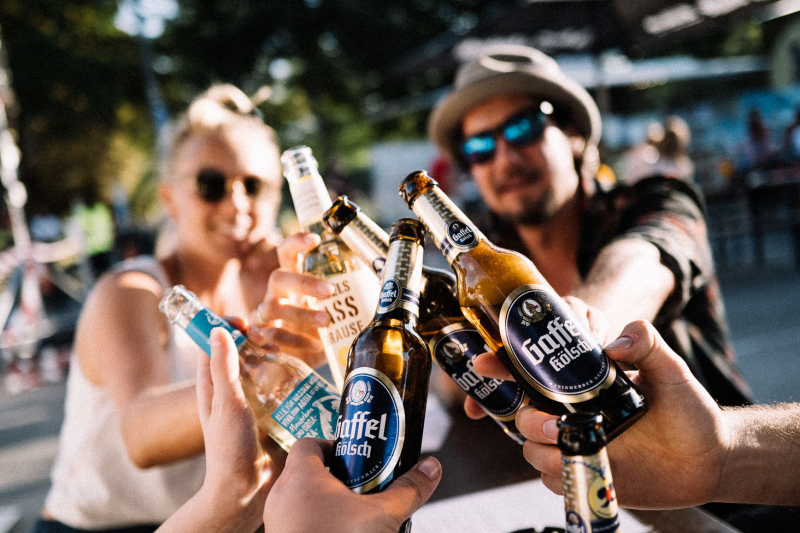
Gaffel Kolsch -
Badische Staatsbrauerei Rothaus is a brewery in Baden-Württemberg, Germany. Rothaus, located on the outskirts of the southern Black Forest settlement of Grafenhausen, is one of Germany's most successful and lucrative regional brewers. The brewery's most successful product is Rothaus Tannenzäpfle, or simply Zäpfle, a Pilsner-style beer sold in bottles and accessible in stores across Baden-Württemberg. It is a well-known cult beer in Germany, and it is available in supermarkets, kiosks, and numerous nightlife facilities. Despite Rothaus's lack of aggressive advertising, demand for the once-local beer has grown throughout Germany.
Every bottle's label has a blonde girl dressed in traditional costume holding a drink in either hand. Fans of the beer began to refer to her as Biergit Kraft, a play on words in the local Alemannic dialect. Bier git Kraft translates as "strengthening beer." The Tannenzäpfle label also depicts seven fir cones, which resulted in the beer's name. Since 1972, the present label has been in use. The girl and the fir cones initially appeared on the label in 1956 as part of a photorealistic artwork. The original label was reissued as a limited edition in 2006 to commemorate Rothaus's 50th anniversary.
The malted grain is crushed at the start of the brewing process. To make the mash, brewing water is combined in the mash containers and heated. This separates the liquid from the solid components, which are the brewer's grains. The acquired result is known as wort, and it now makes its way to the brewing pan with its vital elements. The hops were put to the brewing pan. The wort is vigorously heated for almost an hour, which dissolves the bitter compounds in the hops and imparts a pleasant scent to the wort. The brewing time is around eight hours. Rothaus' intricate brewing process culminates in what they do best every day. The region and every bottle of Rothaus beer represent the serenity and care with which they make their brews.
Website: https://www.rothaus.de/
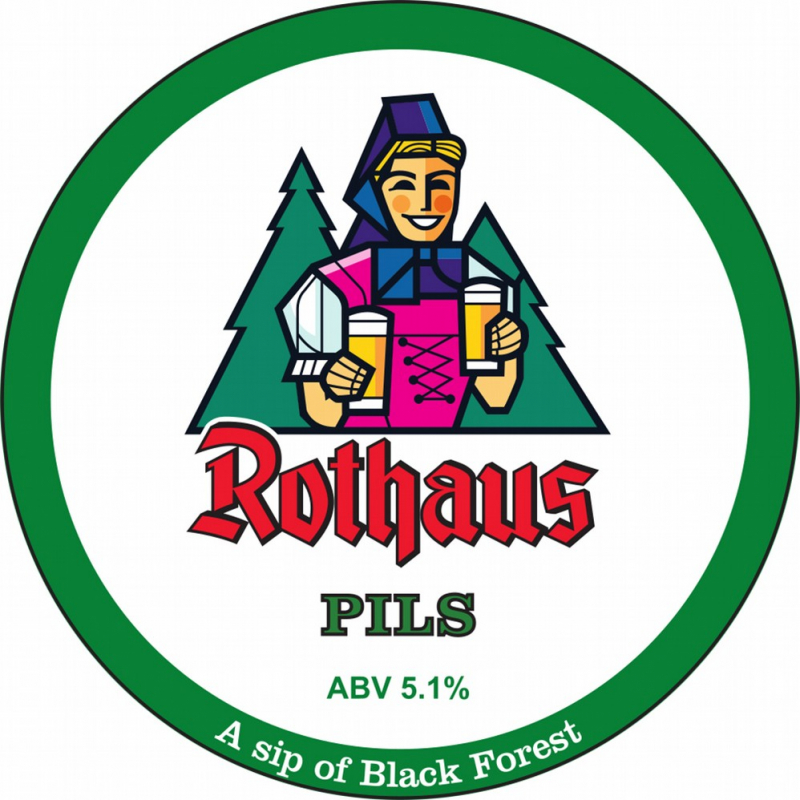
Rothaus 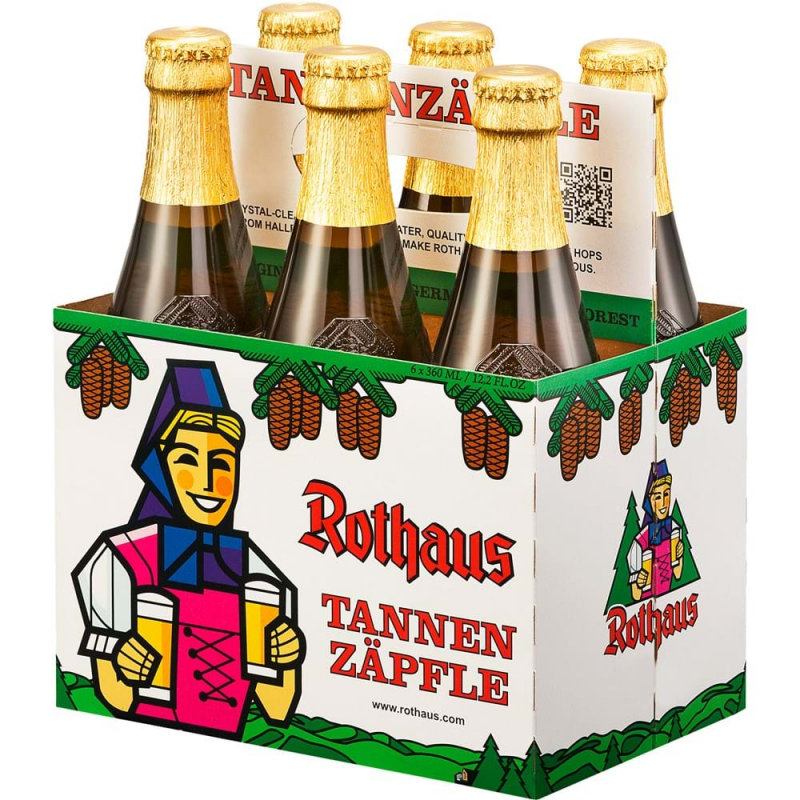
Rothaus -
Since 1050, beer has been made at the famed Danube breakthrough in the heart of Bavaria. The Weltenburg monastery brewery was created in the 7th century by Irish-Scottish wandering monks and is presently controlled by the Benedictine abbey of Weltenburg. Weltenburg Abbey brewery (Weltenburger Klosterbrauerei) is said to be the oldest monastery brewery in the world, having been in operation since 1050, however, Weihenstephan Abbey claims the honor.
Weltenburger Kloster brews a variety of German classics, although only the Hefe-Weissbier Hell, Anno 1050 (a Märzen), Barock Dunkel, and Asam Bock are offered at the Klosterschenke. Weltenburger Kloster employs caramelized Munich malt, which imparts a dessert-like flavor without being too sweet.
Nothing is left to chance in the Weltenburg monastery brewery, from the stalk to the glass. The monastery brewery is in charge of all aspects of the brewing process, beginning with the raw ingredients. As a result, only ingredients from long-term regional partners who can regularly achieve the highest quality criteria are used. To that end, all raw ingredients used in Weltenburger beers are meticulously examined in the brewery's laboratory before being processed. The quality of the beers is constantly monitored throughout the brewing process. The numerous honors in national and international contests attest to the exceptional quality of Weltenburger beers. Weltenburger Kloster Barock Dunkel was named the greatest Dunkel beer in the world by the World Beer Cup in 2004, 2008, and 2012.
Website: https://www.weltenburger.de/
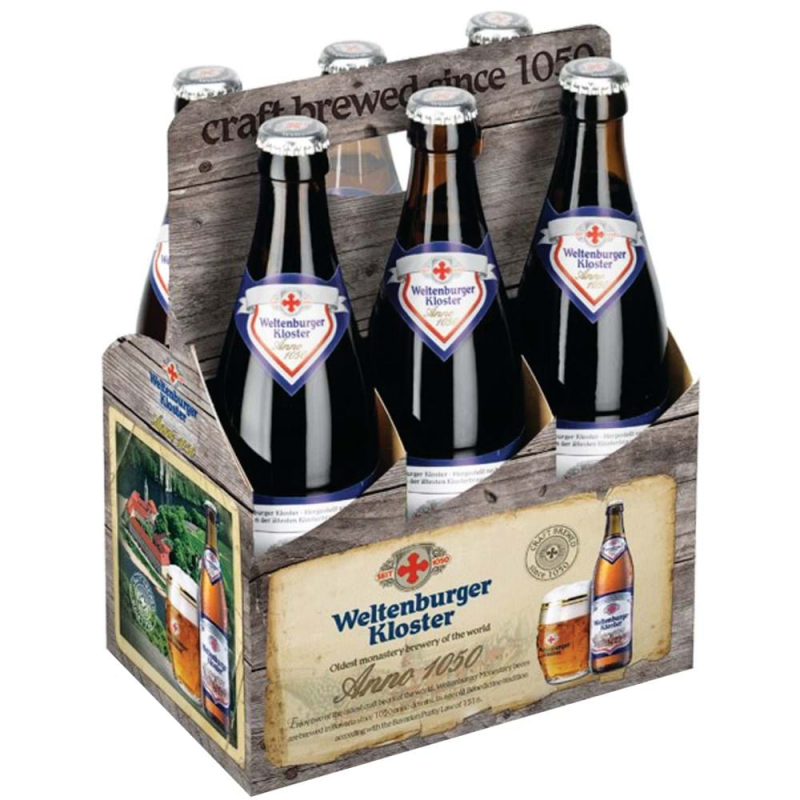
Weltenburger Kloster 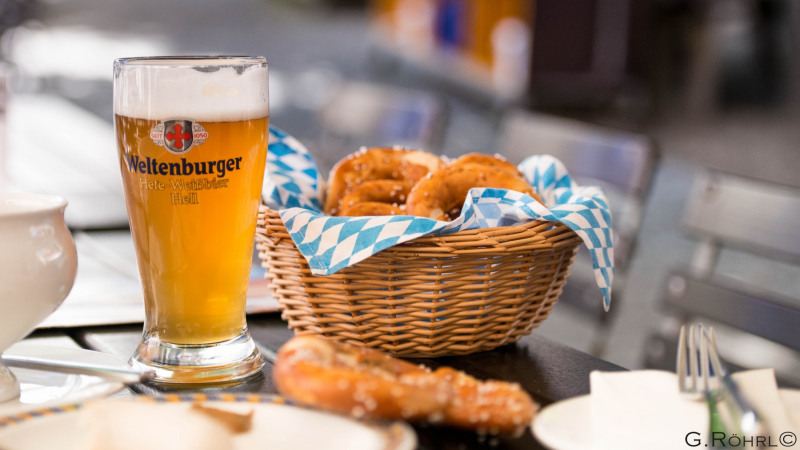
Weltenburger Kloster -
Augustiner-Bräu is a Munich, Germany-based brewery. It is Munich's oldest independent brewery, having been founded in 1328. The Edith Haberland Wagner Trust owns 51% of the corporation, while the Inselkammer-Family owns the other 49%. The Augustinian monks began producing beer at their Augustinian monastery near Munich's Cathedral around 1328. For over 500 years, the monks brewed their beer smack in the middle of Munich, at the Augustinian monastery. After that, their Augustiner beer is no longer made by monks dressed in the Augustinian order's garb, but by skilled brewmasters using carefully selected regional raw ingredients.
In the course of secularization, the state took over the Augustinian monastery in 1803. Brewer Anton Wagner bought the brewery in 1829, and it has operated as a privately held brewery ever since. His son Josef Wagner later erected a new contemporary edifice on Landsberger Strasse, where the brewery relocated in 1885. To this day, this is where they make beer. They have placed a high priority on its traditional oak barreled draft beer throughout the years, which is given special attention by Augustiner-Bräu brewmasters. Excellent brewing water, obtained from a well reaching a depth of 230 meters, lies at the heart of the brews. Their floor malting process has been passed down through generations and, while it takes a long time, it allows the malt to "breathe."
Lagerbier Hell, a pale lager with an extended secondary fermentation, is one of the Augustiner- Bräu beers. Edelstoff is brighter, sweeter, sparklier, and stronger. Augustiner Dunkel, a dark malty beer. Augustiner Pils, made in the traditional Pilsner style. Augustiner Weißbier. Oktoberfestbier, often known as Märzen in German, is beer type created specifically for the Oktoberfest. Maximator was brewed in time for Lent. Heller Bock, a well-lager pale, seasonal beer, is only available in May and June in Munich.
Website: https://www.augustiner-braeu.de/home.html
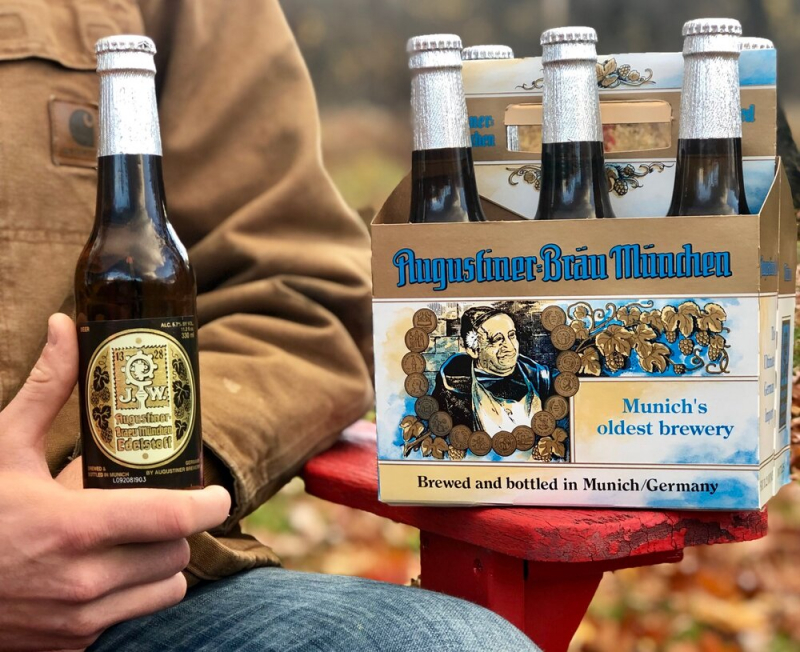
Augustiner-Bräu 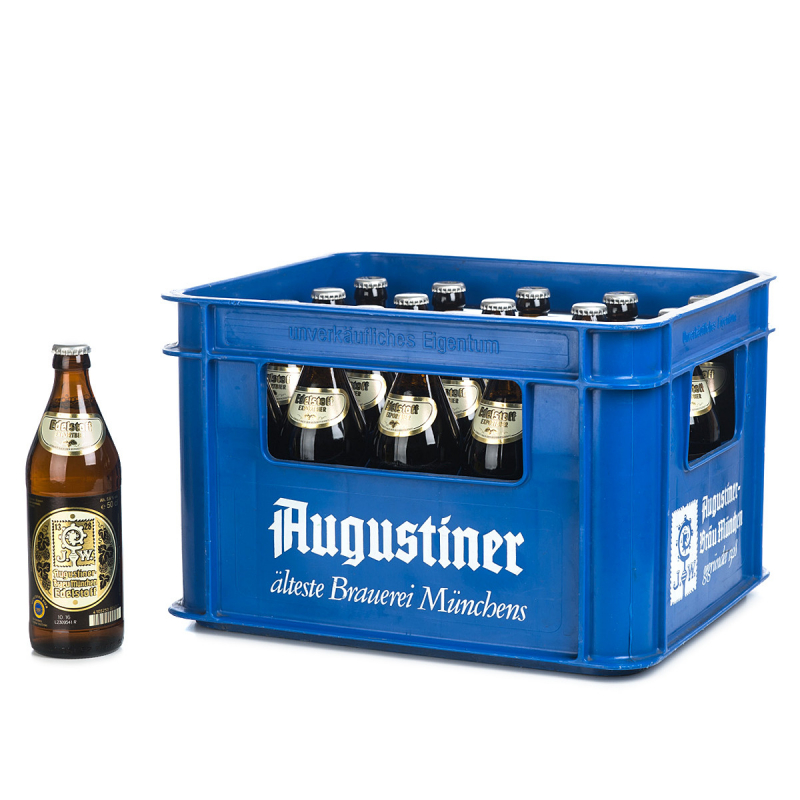
Augustiner-Bräu -
The Einbecker Brewery is a brewery located in Einbeck, Germany. Founded before 1378, it is one of the oldest still operating breweries in the world. The city of Einbeck is noted for its bock beer, and Einbecker, the only remaining brewery in town, makes multiple varieties thereof.
The perfect composition of the best hops and selected fine malts bring the classic bitter character of Einbecker beer to mature perfection. The classic from Einbeck is a pure delight, either freshly tapped in a glass or its exclusive bottle. Einbecker Ur-Bock Dunkel is a classic beer of brand that is packaged in a bottle based on the original 1851 design. Einbecker beer is a soft, malt flavor with notes of toffee and raisins, with just a sprinkling of hop character to balance out the interplay of caramel and molasses.
Over 600 years of brewing tradition, the most modern brewing technology, and a highly qualified team make up the success recipe for their company. Because of its bock beer brewing tradition, Einbecker Brewery is one of the most renowned and respected breweries in Germany. Extensive Pils experience, the production of specialty beers and focus on the north German region are the company's key elements of their marketing strategy.
Website: https://www.einbecker.de/specialties.html
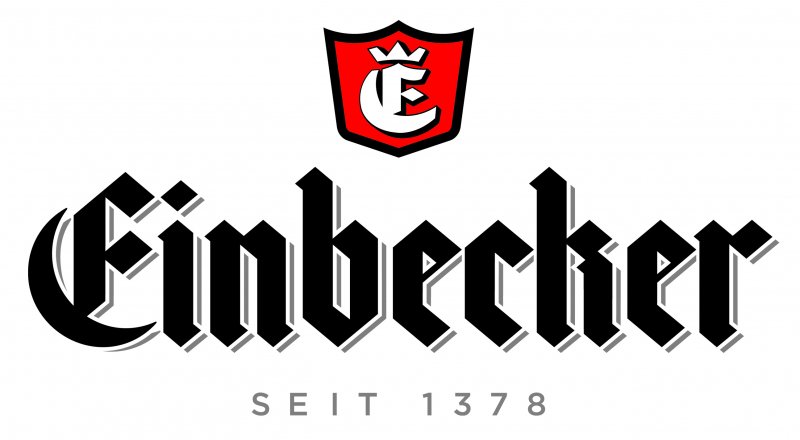
Einbecker 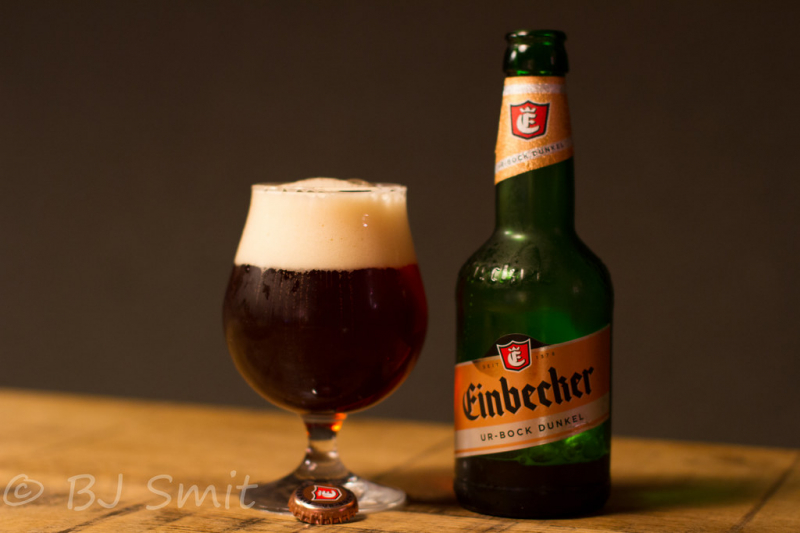
Einbecker -
Paulaner is a German brewery founded in 1634 by the Minim friars of the Neudeck ob der Au monastery in Munich. The brewery is named after the order's founder, Francis of Paola. Paulaner is one of six breweries that supply beer at Oktoberfest. Paulaner is the sixth best-selling beer in Germany.
Paulaner beer's popularity has always gone beyond the city borders of Munich. The unique pleasure of beer, their highly talented brewmasters, and the well-known Bavarian way of life are just a few of the aspects that contribute to Paulaner's success both locally and abroad. Every year, more than 2 million hectoliters depart their brewery, traveling from Munich Langwied to over 70 nations. Paulaner has remained true to its roots. The Oktoberfest in Munich and the yearly Salvator tasting with the local politicians' "Politiker Derblecken" are only two instances of how Paulaner maintains its links to Munich traditions.
Paulaner beers are made with water that has been untouched for over 10,000 years and is pure. This deep water is protected by layers of rock and extracted from a water bubble 190 m down. More than 90 percent of beer is water. Every water tastes different and affects the taste of the beer. Water hardness also influences taste, brewing process, and color. The soaking water from the deep Paulaner well contains less of the salts that interact with mash enzymes and the beer wort personnel and management painstakingly supervise 6 phases in a rigorous manufacturing process, from raw material selection through fermentation to packaging and final quality check before leaving the facility. To provide users with the highest quality and most delectable beer drops.
"Good, better, Paulaner" — Paulaner Brewery's well-known motto – is more than simply an advertising term. It serves as a benchmark for all their employees. Since 1634, the name Paulaner has stood for outstanding quality and Munich beer culture. The Paulaner brew masters create a wide range of Bavarian beers, from classics like Weißbier and Hell to specialties like Salvator and Oktoberfest Bier, as well as innovative beer inventions in Munich.Website: https://www.paulaner.com/
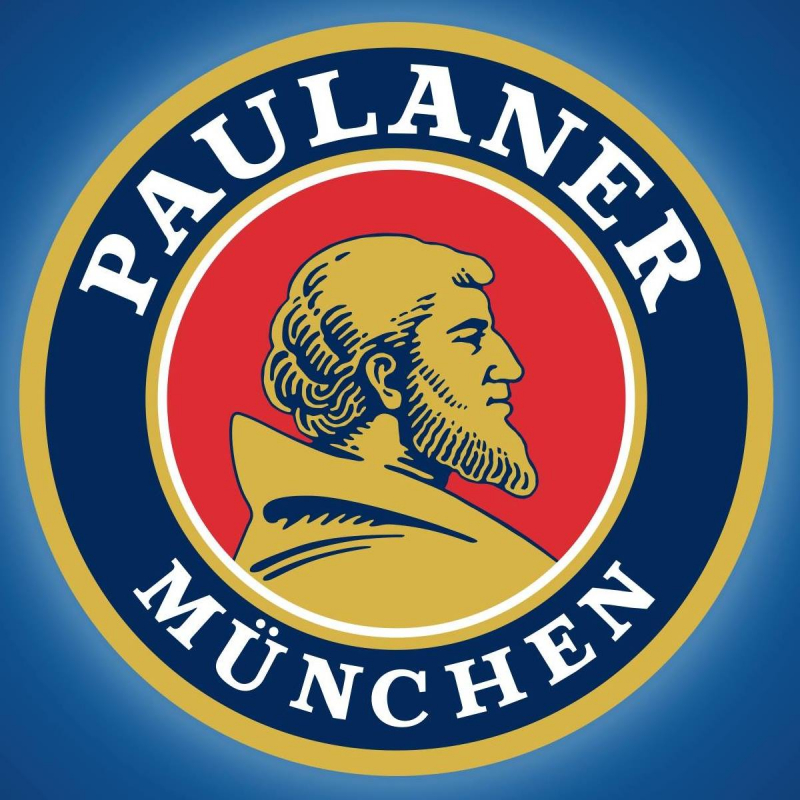
Paulaner 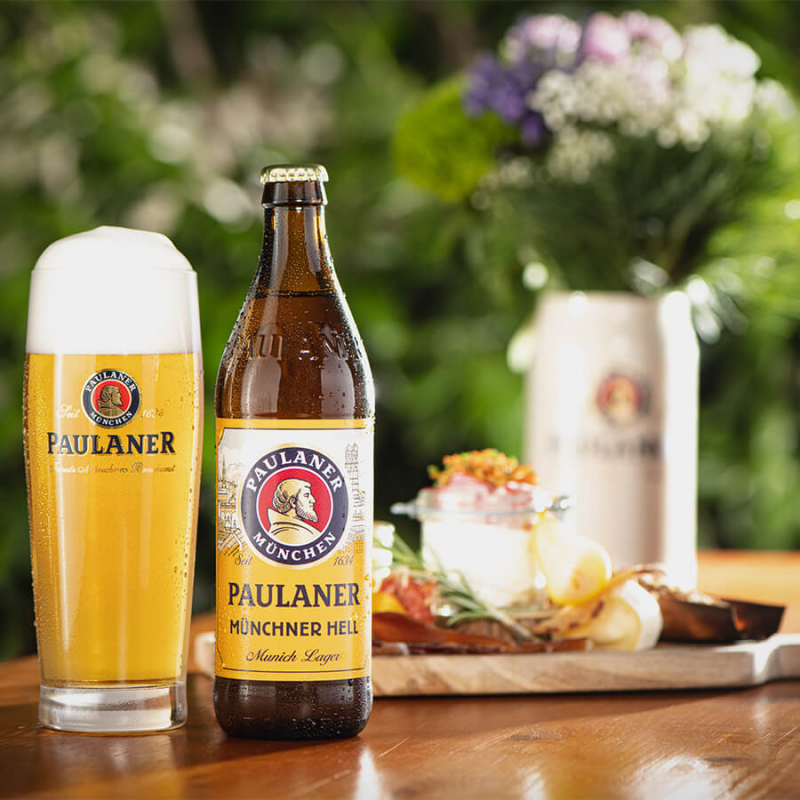
Paulaner -
The Köstritzer brewery, established in 1543, is one of Germany's oldest makers of Schwarzbier (black beer). It is situated in Bad Köstritz, Thuringia, near to Gera. During the Cold War, Köstritzer was one of the few East German breweries that produced beer for export. The beer was marketed to West Germany from 1956 until 1976. The Bitburger Brauerei has owned the brewery since 1991. The brewery's overall production climbed from 145,000 hectoliters in 1991 to 910,000 hectoliters in 2004.
The brewery shares its name with its most renowned product, Köstritzer Schwarzbier, beer that has created a reputation for itself well beyond Thuringia and Germany's borders. It is not only the market leader in Germany for a bottom-fermented black beer but it is also exported to over 50 countries. Köstritzer Schwarzbier is a rare and unique beer because of carefully selected ingredients, a unique formula, and a passion for brewing heritage. By roasting the barley for malt, their beer gains a distinct roasted malt flavor and an undeniably distinct flavor. Enjoy Germany's most popular black beer and taste the difference.
Angela Merkel visited the Köstritzer Brewery on September 15, 2013, on her election campaign trip. During her visit, she drank a glass of Germany's most popular dark beer and raised her glass in a toast with the 6,000 guests.
Website: https://www.koestritzer.de/
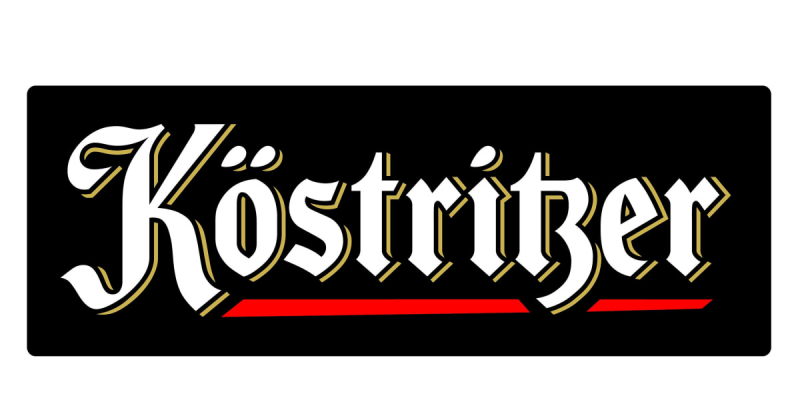
Köstritzer 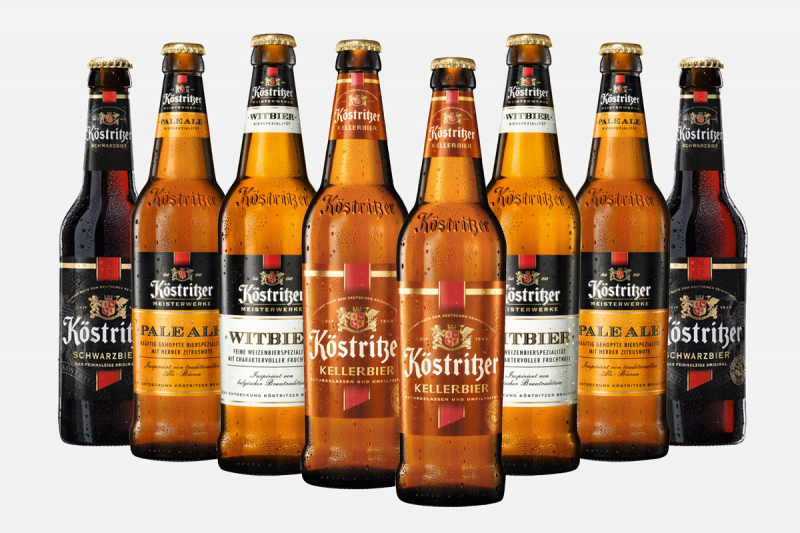
Köstritzer -
In the middle of the old part of Bamberg, directly beneath the mighty cathedral, one can find the historic smoked beer brewery Schlenkerla. First mentioned as "House of the blue lion" in 1405, the Schlenkerla is today run by the Trum family in the 6th generation. The smoked beer is here at the brewery tavern still being tapped directly from the wooden barrel according to an old tradition.
The art of brewing beer has been known for thousands of years. Over time the process of brewing has been continuously improved; this development has not yet reached an end. It has 12 steps from malting, brewing, fermenting cellar, lagering cellar to bottling and racking. Original Schlenkerla Smokebeer brewed according to the Bavarian Purity Law of 1516.
Bamberg's specialty, a dark, bottom fermented smoke beer, brewed with Original Schlenkerla Smokemalt from the Schlenkerla maltings and tapped according to old tradition directly from the gravity-fed oakwood cask in the historical brewery tavern. Schlenkerla Smokebeer Wheat is an ale with a light smoky aroma. As Bavarian wheat beers, it is being brewed with a mixture of both barley malt and wheat malt. The portion of barley malt is hereby a classic Schlenkerla smoke malt, while the wheat malt remains unsmoked. Served unfiltered with its natural haziness, Schlenkerla Wheat reaches its full aroma through bottle fermentation with fine top-fermenting yeast.
Website: https://www.schlenkerla.de/indexe.html
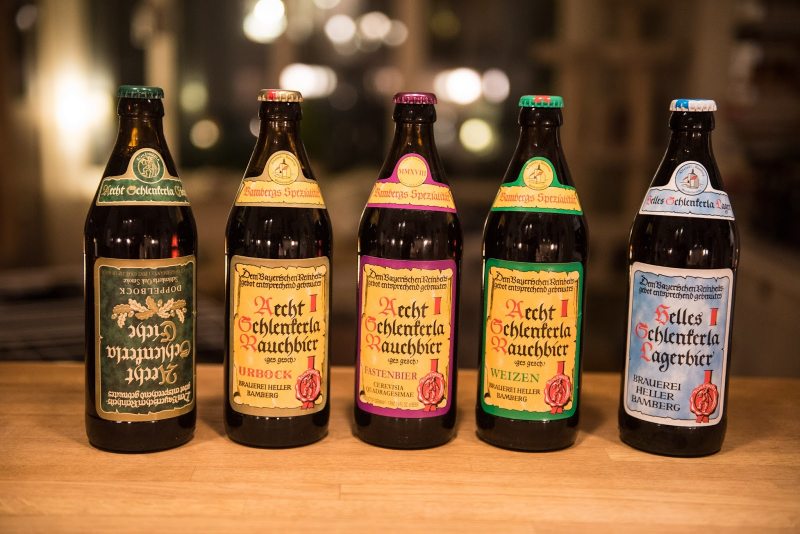
Schlenkerla 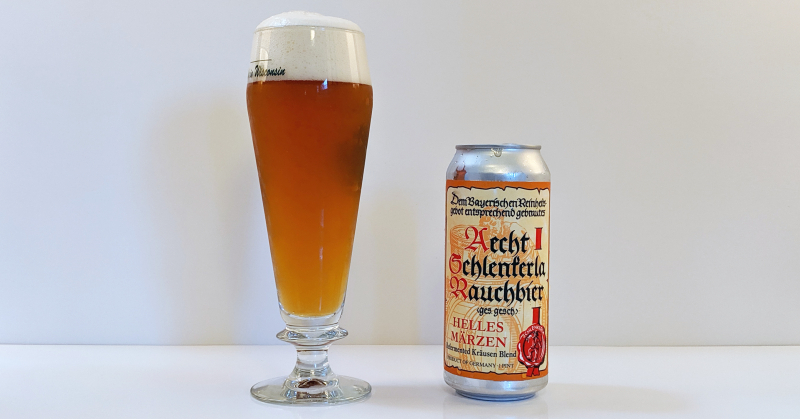
Schlenkerla













